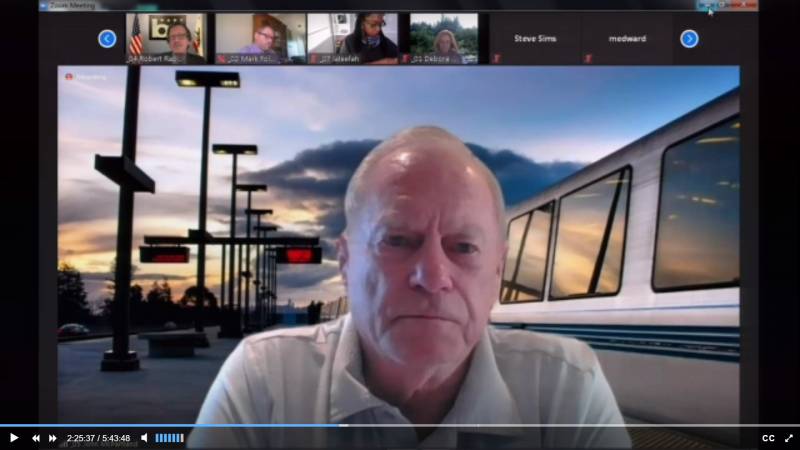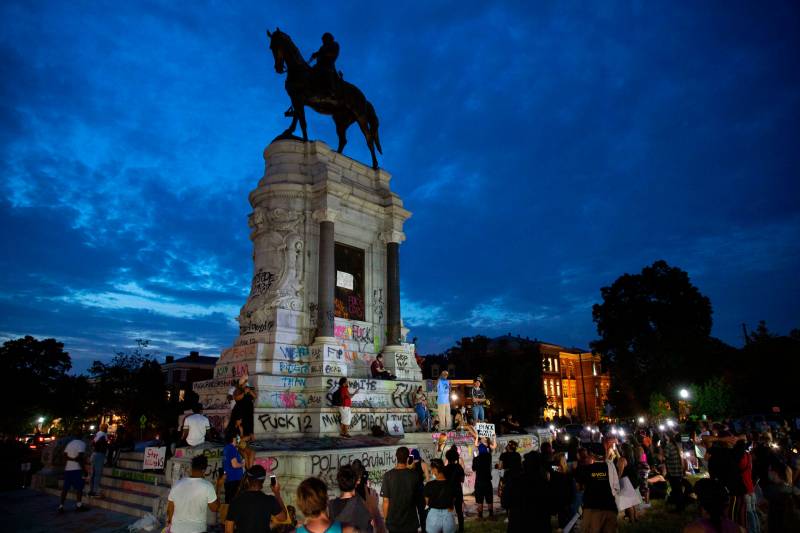BART Director John McPartland leaped at the chance Thursday to support a potentially groundbreaking initiative that would steer the transit agency’s police officers away from dealing with people experiencing homelessness, mental illness or other issues that don’t require an armed response.
It’s unlikely anyone monitoring the BART board meeting, a nearly six-hour marathon conducted via teleconference, anticipated that McPartland’s declaration of support for police reform would include a defense of the career and accomplishments of Confederate Gen. Robert E. Lee. Or that another director would coax McPartland to “walk back” his comments.
McPartland, who represents an Alameda County district, seconded director Bevan Dufty’s police reform initiative. Dufty, whose district includes much of San Francisco, framed it as an effort not only to change the focus of policing on BART but to spare officers from having to deal with situations for which they’re not trained.
McPartland said he wanted to “jump on board” with Dufty’s idea, and started by saying past and current problems with police stem from training and policy problems, rather than with individual officers.
But as a retired Army officer who served two tours of duty in Vietnam, he said calls to defund police amount to the same kind of “villainization” he felt when he returned from wartime service.


